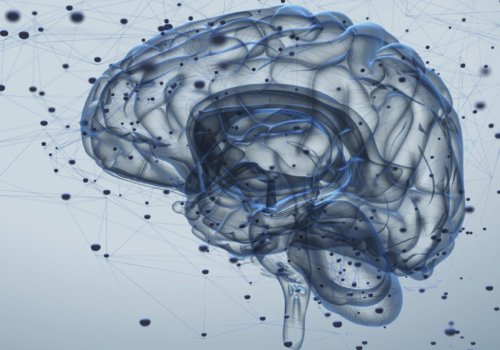
OTC Migraine Treatment: Q&A
Jessica Ailani, MD, FAHS, discusses working with patients and getting honest answers about their OTC migraine treatment strategies
Headache treatment plans often involve over-the-counter (OTC) medicines. But there are several things for healthcare providers to consider about OTC migraine treatment when working with patients. This is especially true when it comes to misconceptions about safety and efficacy. OTC medications carry the potential to cause harm, and their unrestricted use can also lead to medication-overuse headache. This can complicate treatment.
Jessica Ailani, MD, FAHS, is the director of the MedStar Georgetown Headache Center at MedStar Georgetown University Hospital in Washington, D.C. We recently spoke with her about what to keep in mind when treating patients with migraine who use OTC medications.

Why do some patients prefer OTC medication over a prescription? What kinds of problems can this cause that doctors need to remember?
OTC medications can be less expensive and easier to access. This allows patients to obtain and use medication as needed. They also feel more comfortable leaving them places they might be needed, like at work and home.
For migraine, having this kind of access to your medication during an attack can be important. But it can also be a problem. Patients think OTC migraine treatment is safe because you can buy it over-the-counter; that they can be used frequently and the restrictions on the bottle aren’t always followed. A lot of times, I have long discussions with patients about the potential for OTC medicines to be unsafe, especially when they’re being used more often than recommended. There’s a lot of education needed to discuss the safe use of OTC medications.
When you tell a patient that you might need to have labs done to monitor the use of these medications, it wakes them up. It dawns on them that a drug is not safe just because it’s OTC. They start to realize that perhaps they need to be careful about using these medications.
As a healthcare provider, how do you identify medication-overuse headache in patients?
I think the easiest way to identify medication overuse headache—and it is not an easy thing to identify—is looking at patient calendars over time. In reviewing their calendar, we can notice if they are using a lot of medicine. But it’s not easy to tell at first if the medicine is causing the headache, or the headache is causing overuse.
Sometimes, I ask them if they had frequent attacks before they started using the medicine often. Other times, I talk to patients about medication overuse and make changes to their regimen. Then I re-check their calendar at follow-up. If you see at their follow up they’re limiting medication, but still having frequent attacks, it is more likely the headache was causing overuse, not vice versa.
You can still be wrong—they could still be taking something they’re not telling you about. But we try to build that trust with the patient. I ask them to tell me everything. Not because they’re doing anything wrong, but because I want to try to make it better. I try to work with my patients to see what they’re really doing. Sometimes you see that they take a lot more medicine than you thought they did.
How do you help your patient become more honest to help get them on the right track?
Just asking how they’re doing and what they’ve been up to can eventually lead to a conversation that gets the answer you’re looking for without asking directly. It takes time, but you start to build trust. The start to understand what you need to know and that you’re interested in making sure they’re seeing the best results possible.
Building engagement is probably the most important thing in the first couple of visits. You’re building trust and getting them to own and accept their disease, which can sometimes take several visits. Then they must work on improving their disease. This is a difficult thing to do. Working to improve their disease may not always be successful, or may take longer and more work than the patient realizes.
Jessica Ailani is a member of the American Headache Society, a professional society for doctors and other health care workers who specialize in studying and treating headache and migraine. The Society’s objectives are to promote the exchange of information and ideas concerning the causes and treatments of headache and related painful disorders, and to share and advance the work of its members. Learn more about the American Headache Society’s work and find out how you can become a member today.


